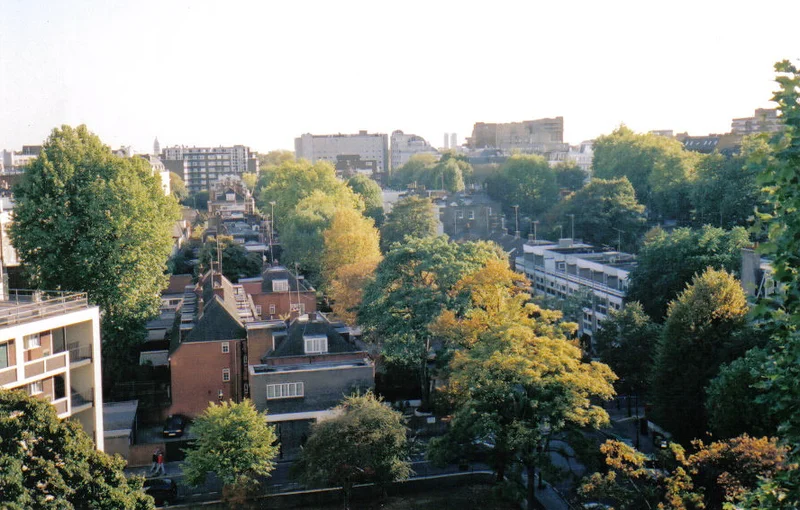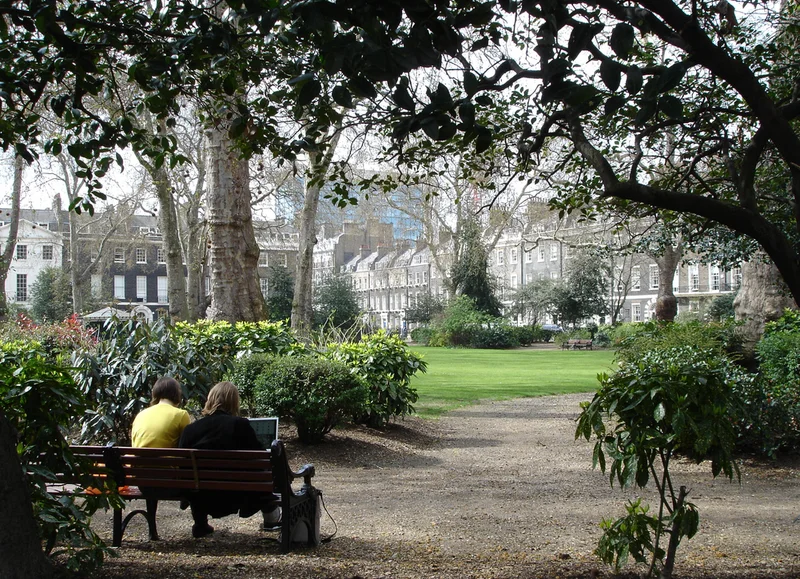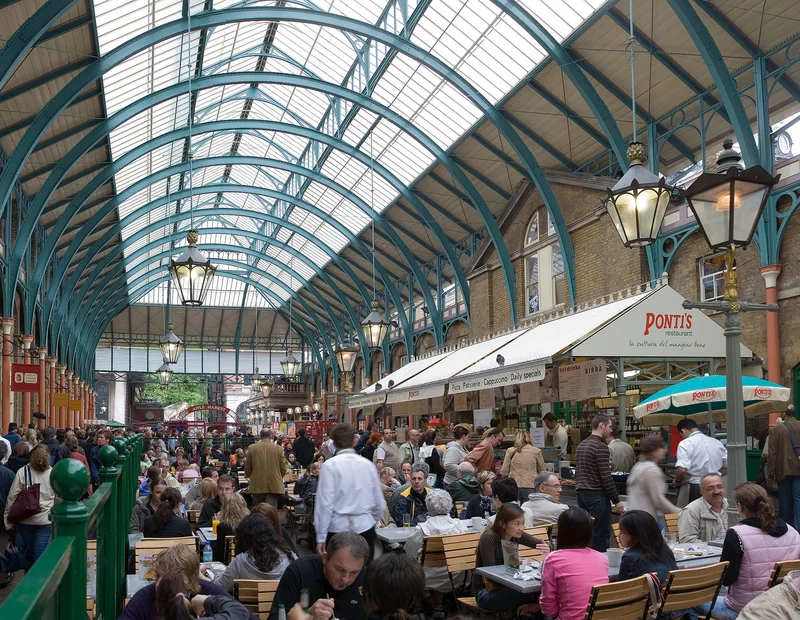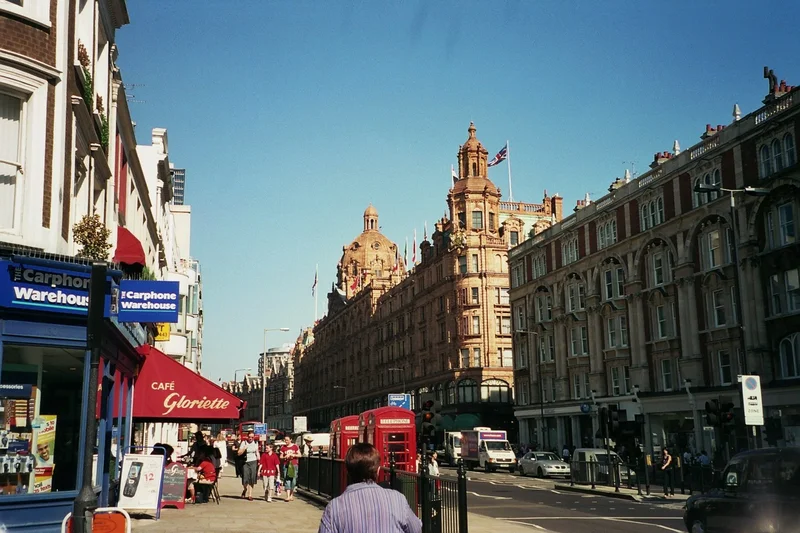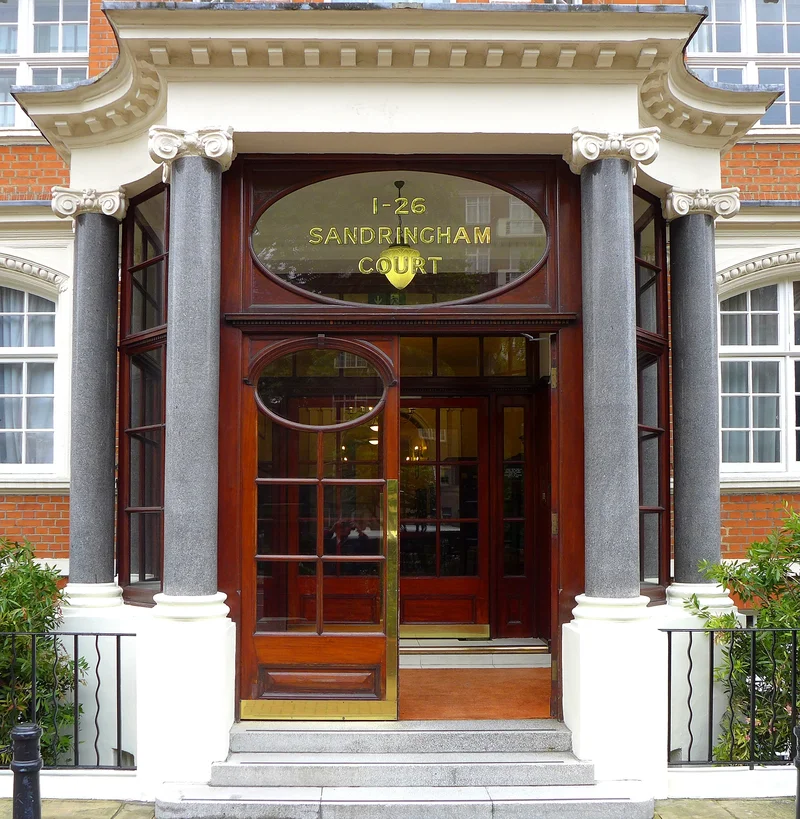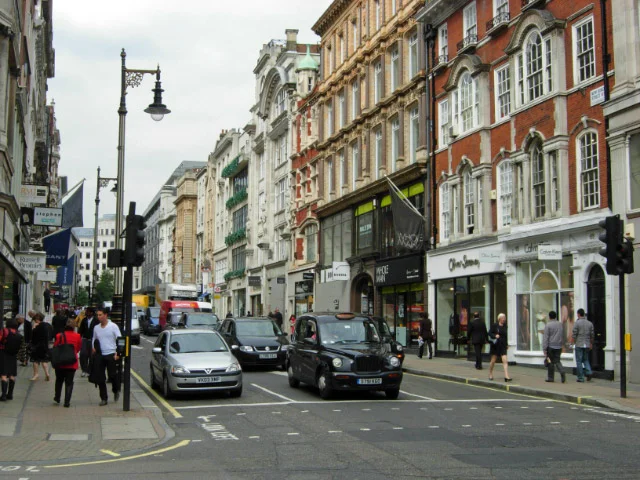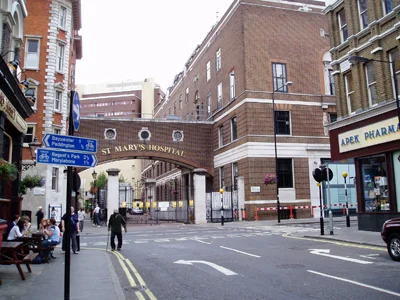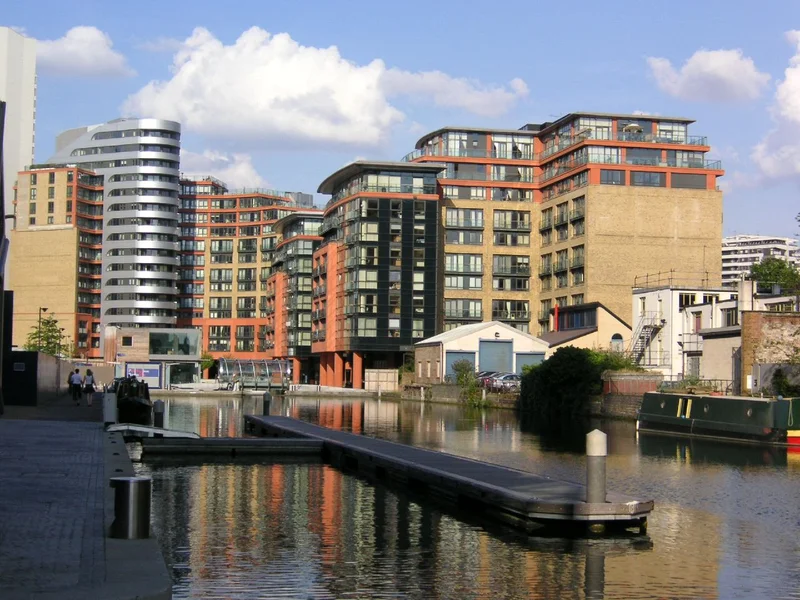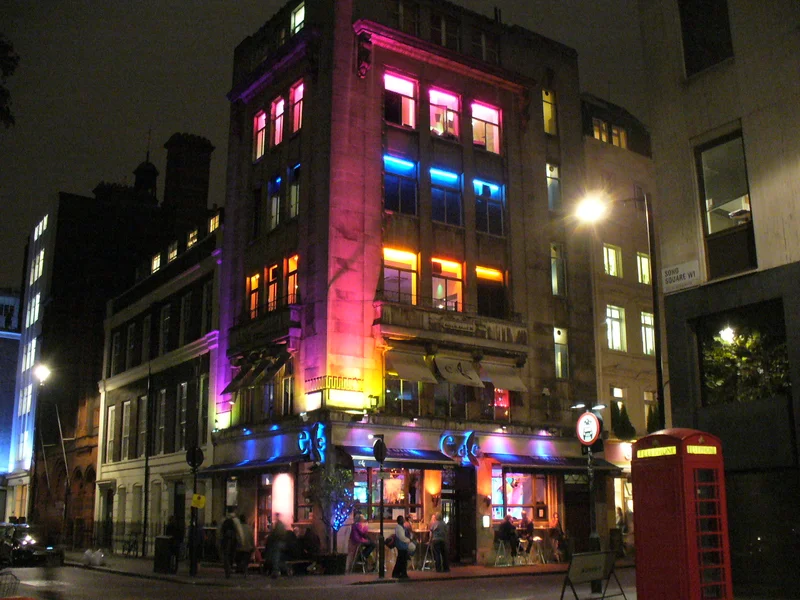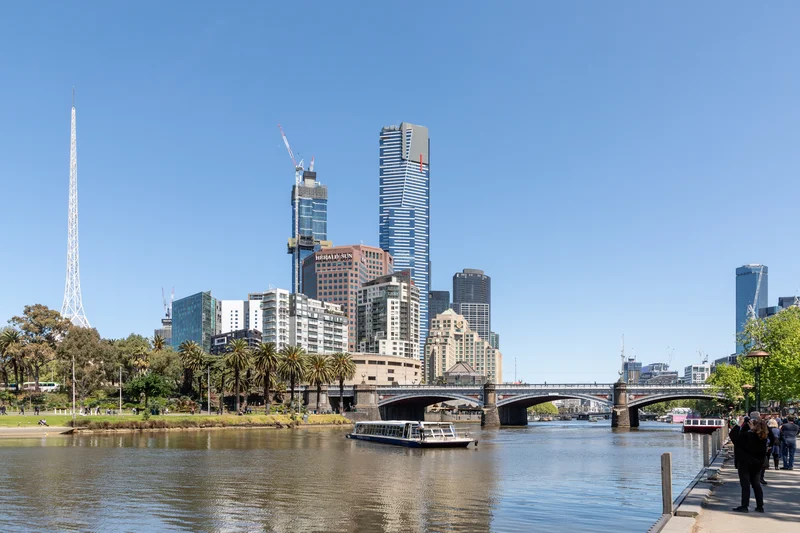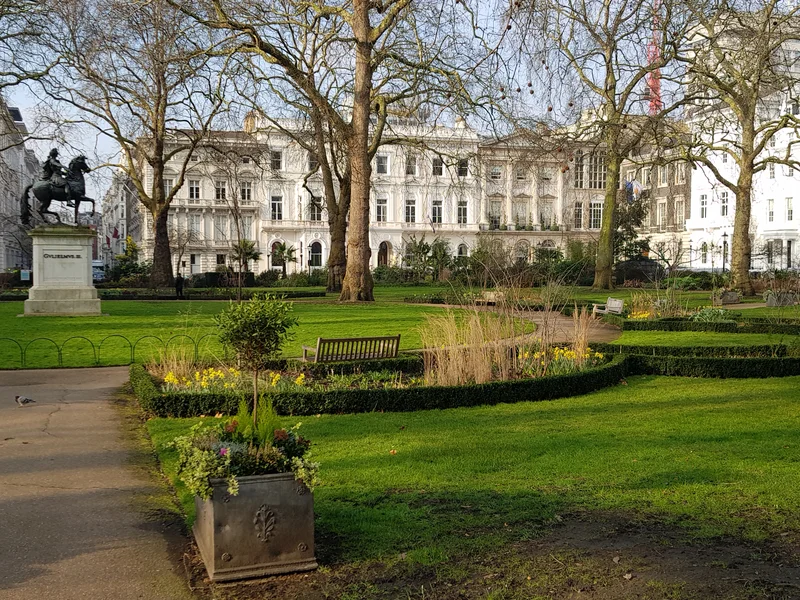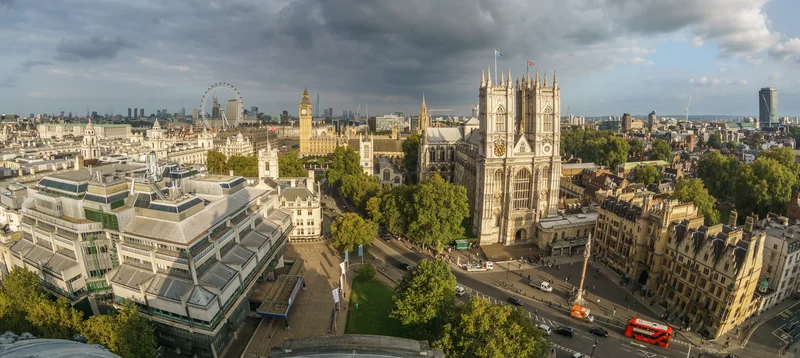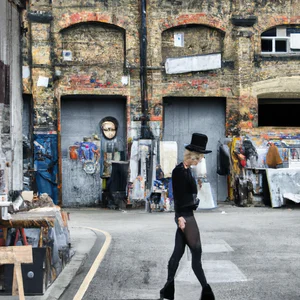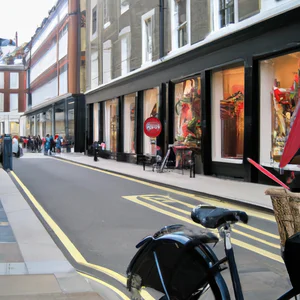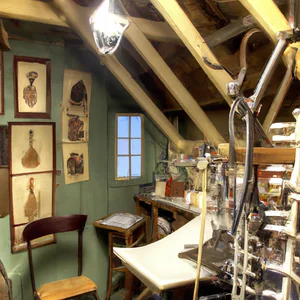Book your experience
Free Wi-Fi in London
Tipping in London: some tips to avoid making a fool of yourself
So, let’s talk about tipping in London. Yes, I know, it may seem a bit boring, but believe me, it’s important. When you are around the British capital, you realize that there are some little rules to follow so as not to look like a fish out of water. I don’t want to say that everything has to be as rigid as an iron bar, but anyway, a little advice never hurts, right?
First, in restaurants, you usually leave a tip that varies between 10 and 15% of the bill. But, and I want to underline it here, if the service was terrible, you can also decide not to leave anything. Once, I remember dining at a place where the waiter seemed more interested in his phone than in us. In the end, I left just a couple of pennies, just to make it clear that she hadn’t done very well.
And then, it must be considered that in some places, the tip is already included in the bill, so it is always better to take a look. You never want to find yourself paying twice for the same service. In short, always check your bill before taking out your wallet!
Oh, and let’s not forget about taxis. Here you are expected to tip around 10%. But, well, if the taxi driver was particularly kind - like, maybe he gave you some tips on places to visit or put on some nice music - then you can also think about rounding up a little more. Once, I took a taxi that made me laugh like crazy, and in the end I left 15%, because, well, good company deserves to be rewarded, right?
Then there are the bars. Here, it’s usually more informal. If you get a drink at the bar, you can leave a couple of coins, but it’s nothing obligatory. Maybe if you’re having an evening with friends, you might even think about paying for a beer for everyone, so you can make a great impression.
In summary, tipping in London is a bit like a parlor game: there are rules, but in the end it all depends on how you feel. So, don’t stress too much and enjoy your time in the city. I think in the end, it’s all about being kind and respectful, and if you leave a smile with the tip, well, that’s a big step forward!
Tipping in London: when and how much to give
A personal experience
I remember the first time I arrived in London: a rainy afternoon, with an umbrella in one hand and a tour guide in the other. After an intense day of exploration, I decided to stop at a quaint restaurant in the Covent Garden neighborhood. When paying, I felt unsure how much to tip. This situation, for many tourists, may seem common, but in reality it is a crucial aspect to understand in order to navigate the social norms of the British capital.
Practical information on tipping
In London, tipping is not always mandatory, but is generally appreciated as a sign of gratitude for good service. In restaurants, it is customary to leave a tip of 10-15% of the total amount, unless it is already included in the bill as a “service charge”. It is always a good idea to check your bill, as in some restaurants, especially the more elegant ones, the tip may already be included.
For up-to-date confirmation on tipping practices, you can consult local sources such as the Visit London website, which offers useful advice for tourists.
An insider tip
A little-known trick is to carry small coins with you. In many pubs, bartenders appreciate a direct cash tip, as it can be immediately recognized and used. This practice, in addition to being a gesture of appreciation, helps to create a more personal bond with the restaurant staff.
The cultural impact of tipping
Tipping in London has deep historical roots, rooted in the tradition of service and gratitude. Originally, tips were a way for noble customers to recognize the contribution of servants. Today, they reflect a culture of service excellence and a desire for reciprocity between customers and workers. Understanding this context can help tourists feel more comfortable tipping.
Responsible tourism
When talking about tipping, it is also important to consider a sustainable tourism approach. Leaving generous tips can help support workers who often live on wages and tips. Choosing restaurants and services that value fair and responsible work is one way to contribute to a healthier community.
An activity worth trying
To immerse yourself in London’s food culture, I recommend taking a guided food tour at one of the local markets, such as Borough Market. Here, you will have the opportunity to not only savor delicious dishes, but also better understand the dynamics of local tipping and culinary interactions.
Myths and misconceptions
A common misconception is that tipping is mandatory everywhere. In reality, while they are appreciated, they are never a duty. Furthermore, there are tourists who mistakenly believe that tipping too much may seem excessive; in reality, an adequate tip is a gesture of recognition of the quality of the service received.
Final reflection
Next time you’re in London and feeling undecided about how much to tip, remember that it’s a personal gesture and that your contribution can make a difference. Have you ever thought about how small actions, like a tip, can positively influence the experiences of the people we meet on our travels?
Tipping in London: When and How Much to Give
Tips for restaurant service
I still remember my first dinner in London, sitting in a cozy restaurant on the Southbank, surrounded by the vibrant atmosphere and the scents of the food. As I savored a delicious plate of fresh seafood, I realized that the issue of tipping was a topic I had never heard of before. With the bill in hand, I felt a little lost: how much should I leave? It was precisely at that moment that I understood the importance of knowing local customs.
Tipping in restaurants: the golden rule
In London, it is customary to leave a tip of 10-15% of the total bill, unless it is already included in the price. Many restaurants clearly state whether service is included, but it is not uncommon to find situations where staff expect extra compensation for exceptional service. According to the London Evening Standard, it is advisable to check the bill and, if the tip is not included, decide freely based on the quality of the service received.
An insider tip
Here’s a little-known trick: If your waiter is particularly attentive and the service exceeded your expectations, he’ll consider tipping you in cash, even if you paid by card. This often appreciated gesture ensures that your contribution goes directly to staff, without the usual bank fees.
The cultural impact of tipping
Tipping in London is not just a matter of courtesy, but also of culture. This practice has its roots in the UK service system, where wait staff are paid less than the minimum wage, relying on tips to supplement their wages. Interestingly, while in some countries tipping is considered an obligation, in London it is more of a recognition of excellent service.
Sustainability and responsible tourism
When you leave a tip, you are also contributing to the local economy. Many London restaurants are adopting responsible tourism practices, using local and sustainable ingredients. Opting for these establishments not only enriches your gastronomic experience, but also supports the producers in the area.
Imagine being there
Imagine sitting in a restaurant overlooking the Thames, the sun setting and lighting the city in a warm orange. Your waiter recommends a local wine that pairs perfectly with your dish. At the end of the night, you leave a little extra on the table, knowing that you made a difference in someone’s business.
An experience worth trying
For an authentic dining experience, visit Borough Market, where you can savor dishes prepared by local chefs. Here, tips are not just a gesture of gratitude, but a way to support the city’s culinary arts.
Misunderstandings to be clarified
A common misconception is that tipping is mandatory. In fact, many Londoners say that tipping should be a reflection of your satisfaction. Don’t be afraid to express your disappointment if the service isn’t up to par.
A final reflection
Next time you sit down at a table in London, ask yourself: How can I make my experience and that of others more memorable? Tips are not just monetary, but a way to recognize the hard work and talent of those who contribute to make your visit special.
Taxis and transport: the rules of tips
A taxi trip to London
I remember my first trip to London, when, after a long day spent walking around the wonders of Westminster, I decided to take a taxi back to the hotel. Climbing aboard that iconic black cab, my driver, a quick-witted gentleman, told me fascinating stories about the city. At the end of the ride, I found myself in an awkward situation: I knew I should have left a tip, but how much? This experience taught me that tipping rules in London, especially for taxis, are a crucial aspect to understand to better enjoy the city.
The rules of tipping in taxis
Generally, in the UK, there is no strict obligation regarding tipping, but it is considered a gesture of appreciation for good service. For taxis in London, it is customary to tip 10-15% of the total fare. Many taxi drivers, especially black cab drivers, expect to receive a tip, so it is good practice to round the final figure or add a nominal amount. For example, if the ride cost £12, a £2 tip is an appreciated gesture.
An insider tip
Here’s a little-known tip: when paying by credit card, check if the taxi driver has a terminal that allows you to add the tip directly. Some taxi drivers offer this option, making the process easier and faster. Also, remember that when you experience exceptional service, tipping more generously can lead to a livelier conversation and a more pleasant ride!
The cultural impact of tipping in transportation
Tipping in taxis is not just a matter of courtesy, but reflects a part of British culture that values recognition of service. London taxi drivers are known for their knowledge of the city, a skill that takes years of training. This historical aspect, known as “The Knowledge”, makes every ride an opportunity to learn more about the capital.
Sustainability and responsible tourism
In the context of responsible tourism, it is interesting to note that many taxi drivers in London are switching to hybrid or electric vehicles. Choosing to use taxis that support eco-friendly practices, in addition to tipping, can contribute to more sustainable tourism.
Immerse yourself in the London atmosphere
Imagine slipping into your taxi, as the world of London reveals itself as you pass. The bright lights of Piccadilly Circus, the sounds of traffic and the sight of historic monuments create a unique atmosphere. Each ride becomes an experience, an opportunity to discover the city from a different perspective.
An activity worth trying
To make your experience even more memorable, try asking your taxi driver to recommend a local restaurant. Many of them have great insights into the best places to eat, away from the tourist trail.
Myths to dispel
A common misconception is that leaving a tip is an obligation. In fact, it is a gesture of gratitude for satisfactory service. If you’re unhappy with the ride, don’t feel obligated to leave anything behind.
A personal reflection
When I think about tipping in London taxis, I remember that every journey is an opportunity to connect. Have you ever wondered how many stories are hidden behind the face of a taxi driver? Next time you take a taxi, stop for a moment and ask: what is the most interesting story you heard today?
Tipping in pubs: a custom to know
A personal experience
I still remember my first afternoon in a traditional London pub, The Churchill Arms, with its flower-covered walls and warm atmosphere that invited conviviality. While I was sipping a pint of ale, I noticed the figure of a bartender who served with a smile and a hint of irony, creating an immediate bond with the customers. I asked myself, “Should I leave a tip?” In that moment, I realized that tips in London pubs are not just about money, but a gesture of appreciation for a service that goes far beyond simply pouring a beer.
Practical information
In general, in London pubs, it is not customary to leave a tip on the counter or table, as you would in a restaurant. However, a small sum is always appreciated if the service was particularly attentive or if time was spent at the table for a meal. Many customers tend to leave a coin for each drink or round of drinks. According to local sources, such as the London Evening Standard, an amount between 10% and 15% of the total is considered appropriate when consuming food, but is not mandatory.
An insider tip
A little-known tip is that, in pubs, it is often more appreciated if you leave the tip directly to the bartender, rather than on the table. This way, you demonstrate your personal appreciation for the service. Also, in busier pubs, it’s advisable to order a round for the group: not only does it create a convivial atmosphere, but the bartender will be more likely to remember your face and your order.
The cultural impact
Tipping in London pubs reflects a tradition of community and socializing that is intrinsically British. These places are not just for drinking, but for sharing stories, meeting new people and immersing yourself in the local culture. Tips, therefore, become a way to recognize not only the service, but also the social experience that pubs offer.
Sustainability and responsible tourism
From a responsible tourism perspective, it is important to remember that many local pubs are committed to sustainability, using 0 km ingredients and promoting craft breweries. Leaving a tip can help support these establishments and, in turn, the local economy. Choosing to dine or drink in a pub that adopts sustainable practices is one way to make a difference.
An activity worth trying
I recommend taking part in a quiz night in one of the many pubs in London, such as The Old Red Lion. Not only will you have the opportunity to have fun and try your hand at trivia questions, but you will also be able to experience first-hand the warmth and hospitality of the staff, making your experience even more memorable.
Common misconceptions
A common misconception is that leaving a tip in a pub is considered rude. In reality, the gesture of leaving a few coins is seen as recognition of the service received, and not as an obligation. It is essential to understand the different local customs to avoid embarrassing situations.
Final reflection
Next time you find yourself in a London pub, take a moment to reflect on how a a simple gesture, like a tip, can help connect you with the local culture and people. What stories might you listen to while you sip your beer? Your London experience could become an unforgettable memory, and the way you choose to interact with locals could make all the difference.
A touch of culture: the history of tips
I still remember my first trip to London, when, fresh from my experience as a tourist, I found myself in a crowded restaurant in Soho. After enjoying a delicious plate of fish and chips, I felt compelled to leave a tip, but I asked myself: how much should I give? It was at that moment that a smiling waiter explained to me that tipping is much more than a simple gesture of gratitude; it is a piece of British cultural history.
The origin of tips: a journey through time
Tipping in London, like in many other cities around the world, has its roots in the past. Originally, the term tip (tip) comes from the acronym To Insure Prompt Service (to ensure prompt service), used in the 18th century in cafes and pubs. This small, economical gesture has become standard practice, reflecting not only the quality of service received, but also the culture of British hospitality.
Current practices and local sources
Today, on average, it is recommended to leave a tip equal to 10-15% of the total bill in restaurants. However, many places already add a 12.5% service charge to your bill, so it’s always a good idea to check before deciding how much to leave. Sources such as Visit England suggest that in different situations, such as in taxis, a tip of a couple of pounds is generally appreciated.
An insider tip
A little-known tip is to tip even in the most informal places, such as food trucks or street food markets. Many vendors sincerely appreciate the gesture and, sometimes, a small tip can also guarantee an excellent selection of the most delicious dishes. If you have a chance, visit Borough Market and tip your favorite vendors; Not only will you make the locals happy, but you might also get insider advice on where to find the best dishes.
Cultural impact and responsible tourism
Tipping is not only an economic issue, but also a reflection of social relationships in a society. In an age where responsible tourism is gaining more and more attention, considering how we tip can positively influence local economies. Supporting industry workers is essential to fostering a healthy, thriving community.
Conclusion and reflection
When you travel to London, tipping becomes a way to connect with the local culture and show appreciation for the work you do. This small gesture, which may seem insignificant, has a profound meaning. Have you ever wondered how tips reflect not only your experience, but also the history and culture of an entire country? The next time you leave a tip, think about it and discover the value this gesture can bring.
Unconventional tipping: experiences to try in London
A personal anecdote
I vividly remember my first visit to London, when I found myself in a small cafe in the heart of Camden Market. After ordering a delicious coffee and a blueberry muffin, I noticed that the barista was wearing a t-shirt with a tongue-in-cheek slogan that read, “Tipping: Our Secret to Better Coffee.” This made me reflect on the importance of tipping not only as a gesture of gratitude, but also as an integral part of the local experience. In London, tipping can take surprising forms, turning a simple coffee into a memorable moment.
Practical information
In London, tips aren’t always what you expect. In addition to the typical 10-15% in restaurants and £1-£2 for taxis, there are other ways of gratification that can be considered unconventional. In some cafes and pubs, for example, it is common to leave a little extra in a jar at the checkout, contributing to a collection for a local cause or a staff trip. According to the Evening Standard, many bartenders and waiters appreciate these “non-standard” tips, as they often go towards supporting community initiatives.
An insider tip
Here’s a little-known tip: If you’re at a market like Borough Market, try tipping local producers or vendors directly. This gesture is not only appreciated, but it also helps build relationships with those who produce your favorite foods. Often, sellers are happy to tell you the story behind their products, making your experience even more authentic.
Cultural and historical impact
The practice of tipping in London has historical roots dating back to medieval times, when nobles would “tip” servants for exceptional service. Today, this gesture has become part of the culture of service, reflecting a value of respect and recognition for the work of others. Unconventional tipping, such as tipping at markets, shows an evolution of this tradition, where community support is at the center.
Sustainability and responsible tourism
In an age where responsible tourism is increasingly important, considering how and who you tip can have a significant impact. Choosing to tip small local businesses or sustainable initiatives not only helps the local economy, but also encourages more conscious tourism.
Activities to try
For an authentic experience, visit one of London’s markets, such as the aforementioned Borough Market or the popular Camden Market. Here, in addition to enjoying delicious food, you will have the opportunity to interact with vendors and, if you feel inspired, leave a tip to support their initiatives.
Common misconceptions
A common misconception is that tipping is mandatory. In reality, in many situations, it’s more a matter of personal choice and how much you appreciated the service you received. Furthermore, it is not uncommon to see people who do not tip in cash, but opt for apps or digital methods, which is perfectly acceptable in modern contexts.
Final reflection
Next time you’re in London, ask yourself: How can my tips reflect my experience and respect for the local culture? Consider exploring unconventional traditions and truly immersing yourself in London life, thereby contributing to a more sustainable and welcoming environment.
Sustainability and responsible tourism in London
During a recent visit to London, I was struck by a statement from a young waiter in an eco-sustainable restaurant in the Shoreditch neighborhood. While serving a dish made from organic, local ingredients, he told me how his restaurant promoted not only environmental sustainability, but also fairness in wages and tips. This pushed me to reflect on how small daily choices, including tipping, can contribute to more responsible and sustainable tourism.
Understand the impact of tipping
In London, as in many other cities around the world, tips are an integral part of the remuneration system in the service sector. However, giving a tip is not just an act of gratitude; it’s also a way to support local workers, many of whom depend on them to supplement their income. According to The Independent, the average waiter’s salary in London can be significantly lower than the minimum wage, making tips a crucial element of their livelihood.
An insider tip
A little-known tip is to find out about restaurant tipping policies. Some venues, especially those that adopt ethical practices, already include a small tip in the final bill. In these cases, tipping additionally may not be necessary, and inquiring beforehand can help avoid misunderstandings. Checking reviews on TripAdvisor or similar platforms can provide additional details on each restaurant’s specific tipping policies.
Tipping culture in London
Tipping in London has deep historical roots, dating back to the times when nobles left small sums to their servants. This tradition has evolved and today reflects not only gratitude, but also a broader cultural value linked to British hospitality. Giving a tip is seen as a gesture of respect and recognition of the work done.
Sustainable tourism practices
When talking about responsible tourism, it’s important to consider how tipping can contribute to stronger local economies. Opting for restaurants and services that treat their employees fairly and practice sustainability is one way to ensure that your tips benefit not only the workers, but also the environment. Choosing restaurants that use local and organic ingredients, like the ones I visited in Shoreditch, is a winning choice.
An experience worth trying
If you want an authentic experience, I recommend visiting a local market like Borough Market, where small vendors offer fresh, artisanal produce. Here, you can not only enjoy delicious dishes, but also tip the vendors, thus directly contributing to the community.
Myths and misconceptions
A common misconception is that tipping is always mandatory. In reality, giving a tip is a voluntary gesture. If the service was not satisfactory, there is no need to feel pressured to leave an amount. Being honest and respectful of other people’s work is essential and, if necessary, you can express your disappointment in a constructive way.
Final reflection
As you explore London, ask yourself: How can your actions, including tipping, reflect your values of sustainability and responsibility? Every small gesture can have a big impact, and tips, if given with awareness, can contribute to tourism that not only enriches the traveler, but also the community that welcomes him.
Tips at local markets: an appreciated gesture
A personal experience
I remember my first visit to Borough Market, a kaleidoscope of colors and scents in the heart of London. While enjoying a delicious pulled pork sandwich, I noticed a sign clearly stating that it was customary to tip local artisans. I never thought I’d even have to consider tips at a market, but that gesture of gratitude turned a simple purchase into an experience of connecting with the producers. This is just one of many examples of how tipping can enrich your experience in London’s markets.
Practical information
In local London markets, such as the famous Borough Market or Camden Market, leaving a tip is a much appreciated gesture, although it is not mandatory. Generally, it is recommended to tip 10% on food and beverage purchases, especially if the service was exceptional. It is important to remember that, in these situations, staff often depend on tips to supplement their income.
An insider tip
One of the best-kept secrets is that, at smaller, artisanal markets, vendors often use these funds to support local projects or sustainability initiatives. If you leave a tip, you may also help keep a tradition or community initiative alive. It’s not uncommon for salespeople to tell stories about their work and how tips can make a difference, making the interaction even more meaningful.
Cultural and historical impact
Tips at local markets reflect a British tradition of recognizing and appreciating artisanal work. London, with its history of vibrant markets and unique communities, has always seen small businesses as the beating heart of the city. Contributing a tip is one way to honor this legacy and support the local economy.
Sustainability and responsible tourism
When visiting markets, also consider the sustainable impact of your choices. Many vendors are committed to using local ingredients and eco-friendly practices. Leaving a tip not only supports staff, but can also be a way to encourage responsible drinking practices.
Soak up the atmosphere
The sound of laughter, the smell of fresh food and the vibrant energy of London’s markets create a unique atmosphere. Walking among the stalls, you can discover flavors that tell stories of different cultures. Every purchase becomes an opportunity to connect with the artisans who put passion into their work.
An activity worth trying
During your visit to London, don’t miss the opportunity to take a food tour of the local markets. You’ll discover unique dishes and be able to interact directly with vendors, creating connections that make your stay even more memorable. And don’t forget to leave a tip!
Common misconceptions
A common misconception is that tips are only for restaurants or taxis. In reality, even in markets and kiosks, a gesture of appreciation is very welcome. Don’t feel embarrassed about leaving a tip; it’s a way to recognize the value of the service you receive.
A personal reflection
The next time you find yourself in front of a market stall, ask yourself: What value do I attribute to this experience? Leaving a tip is more than a simple monetary gesture; it’s a way to recognize the work and passion that fuels the streets of London. Every tip is a little story, a bond that enriches your trip and supports the local community.
Regional differences: tipping in other UK cities
When I traveled around the UK, I had the opportunity to explore several cities beyond London, and one of the most interesting discoveries was the variety of customs surrounding tipping. I still remember with a smile my visit to Edinburgh during the August festival. While enjoying a plate of haggis in a traditional restaurant, I realized that tipping expectations were markedly different to those in London.
A Personal Anecdote
In a crowded pub, I asked the bartender if it was customary to leave a tip. With a smile, he replied, “It depends, buddy! If you’ve had good service, a small tip is always appreciated, but it’s not mandatory.” This got me thinking about how norms can vary, even within the same country. In London, a tip of 10-15% is the norm, but in Edinburgh it tends to be more relaxed, with many just leaving a little change.
Useful practices and advice
If you’re in Manchester, for example, you might notice that it’s common for restaurants to already include a service charge on your bill. Therefore, before you decide to leave a tip, check your receipt. In Wales, however, generosity is appreciated, and a 15% tip is considered a kind gesture. Don’t forget to pay attention to local differences; a gesture that might seem standard in London may not be so elsewhere.
- Restaurants: Check if the service tax is already included.
- Pub: Leave a coin if you appreciated the service, but it is not mandatory.
- Taxi: Rounds the bill as in the capital, but varies from city to city.
Insider advice
Here’s a little-known tip: in restaurants in some cities like Bristol, it’s common to tip in cash even if you paid by card. This is because many workers in the industry prefer to receive tips in cash to avoid transaction taxes. It is a way to ensure that the entire amount goes to them.
Cultural Impact
Tipping customs are heavily influenced by local culture and history. In Britain, the use of tips has historical roots dating back to the days when servants received extra compensation for their service. Today, while the tradition persists, attitudes toward tipping can vary greatly from city to city.
Sustainability and Responsible Tourism
When you leave a tip, you are contributing to the local economy, which is an important aspect of responsible tourism. Instead of relying on large chains, try dining at independent restaurants where tips can make a significant difference in the earnings of those who work there.
The Tipping atmosphere
Imagine walking through the streets of Bath, stopping at a restaurant overlooking the River Avon. After a great meal, by leaving a small tip, you not only show appreciation, but you also connect with the local community, contributing to a warm and welcoming atmosphere.
Myths to dispel
A common misconception is that leaving a tip is an obligation in every situation. In reality, tipping is a gesture of appreciation and not a hard and fast rule. Many Brits don’t tip if the service wasn’t up to scratch, so don’t feel like you have to if you’re unhappy.
Final reflection
Ultimately, exploring regional differences in tipping customs invites you to look beyond superficial traditions and appreciate the cultural diversity of this incredible country. Have you ever found yourself in a situation where you had doubts about how to behave? What experiences have you had that taught you something new about tipping? The answer may surprise you!
Authenticity: How tips reflect local culture
A personal anecdote
I still remember my first evening in London, sitting in a cozy pub in Camden, sipping a pint of craft ale. The waiter, a young man with messy hair and an infectious smile, served me with palpable passion. When it came time to pay, I noticed a small sign on the counter suggesting leaving a tip. Not sure how appropriate this was, I took out a coin and left it next to my glass. The waiter thanked me warmly, but what struck me most was the genuine happiness in his eyes. In that moment, I understood that tips were not just a gesture of gratitude, but a reflection of local culture, a way to recognize and appreciate the work of those who serve us.
Practical information
In London, tipping is a common and generally appreciated practice. In restaurants, it is customary to tip 10-15% of the total, unless service is already included in the bill. For taxis, rounding up the final price is an accepted practice, while in pubs, it is not uncommon to leave a few coins at the bar. According to the London Evening Standard, tipping is a way to support workers, especially in an industry that has faced significant challenges during the pandemic.
A little-known tip
A tip that few tourists know is that, in pubs, it is perfectly acceptable to order a glass of water from the bar without any tip. However, if you choose to order a drink while you wait, consider leaving a small tip for the bartender who served you. This gesture not only shows gratitude, but helps create an atmosphere of conviviality.
Cultural and historical impact
Tipping is rooted in British history and reflects a culture of hospitality and recognition of the work of others. Since the 18th century, when servants were often underpaid, tips have become a way to ensure warmer, more personal treatment. This aspect of London culture continues to exist, contributing to a more welcoming and friendly environment.
Sustainability and responsible tourism
In the age of responsible tourism, tipping can also mean supporting local workers. Some family-run restaurants and pubs use tips to improve working conditions and support local initiatives. Choosing to leave a tip in these places not only shows appreciation, but also contributes to a more sustainable economic cycle.
Immerse yourself in the atmosphere
Imagine strolling through the lively streets of Soho, where the scent of delicious food mixes with the fresh evening air. Entering a restaurant and receiving warm, attentive service can transform a simple meal into a memorable experience. Tips, therefore, become a way to celebrate these authentic interactions and to recognize the commitment of those who work behind the scenes.
An experience worth trying
If you want to fully experience this tipping culture, try visiting a restaurant that offers a tasting menu. Here, the staff will have the opportunity to explain each dish to you, creating a deeper and more personal connection. Leaving a generous tip after such an engaging experience can make all the difference.
Common misconceptions
A common misconception is that tipping is mandatory in every situation. In fact, if the service doesn’t live up to expectations, you don’t have to leave anything. This is part of the local culture: tipping is a recognition of good service, not an obligation.
Final reflection
In an increasingly global world, where traditions mix, tipping in London reminds us of the importance of recognizing the work of others. When you leave a tip, you are not only appreciating service, but also contributing to a culture of respect and gratitude. And you, how do you see the role of tips in your travel experiences?

 Architecture and Design
Architecture and Design Cities and Regions
Cities and Regions Culture and History
Culture and History Events and Festivals
Events and Festivals Fashion and Shopping
Fashion and Shopping Food and Wine
Food and Wine Nature and Adventure
Nature and Adventure Unique Experiences
Unique Experiences